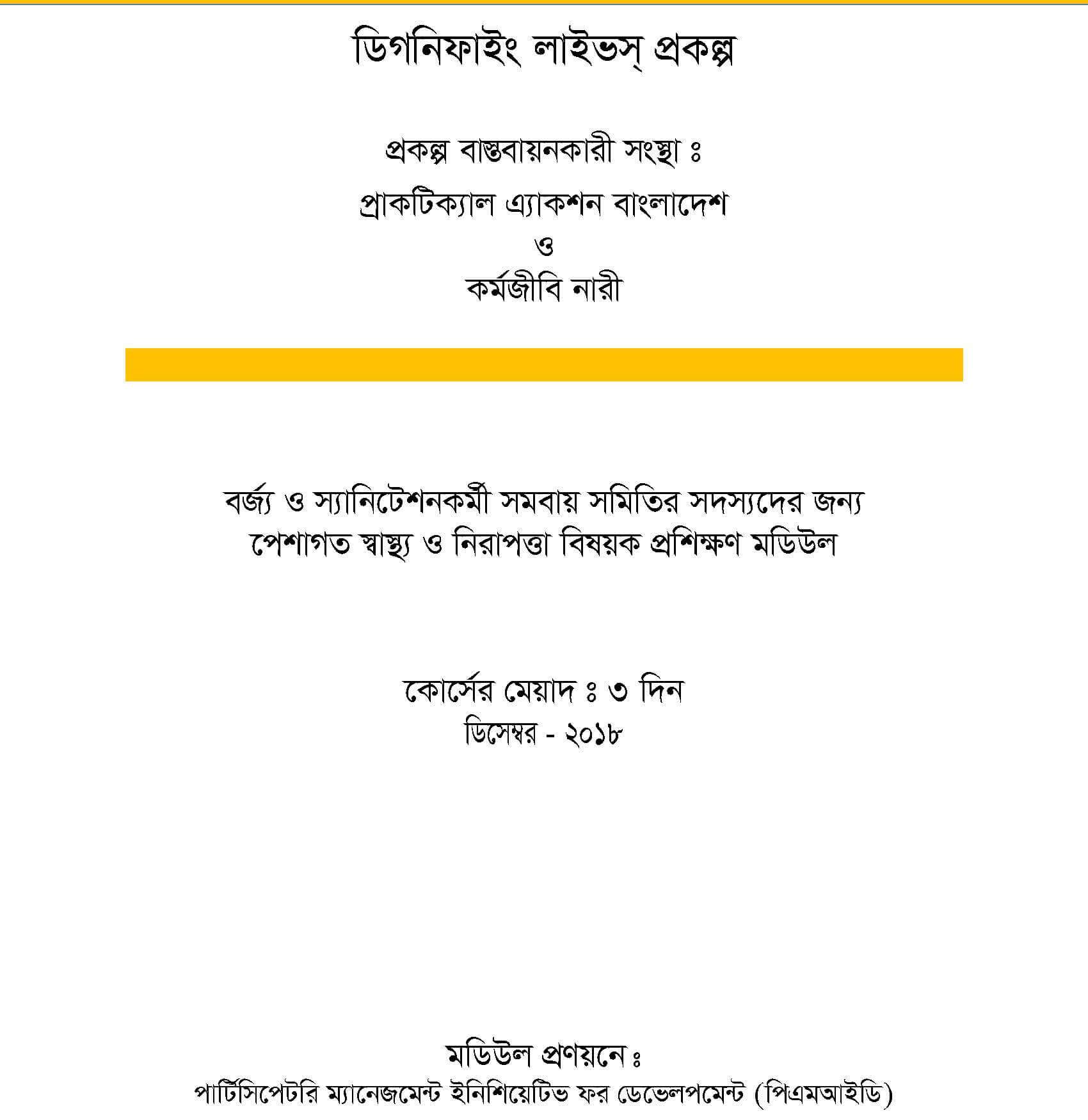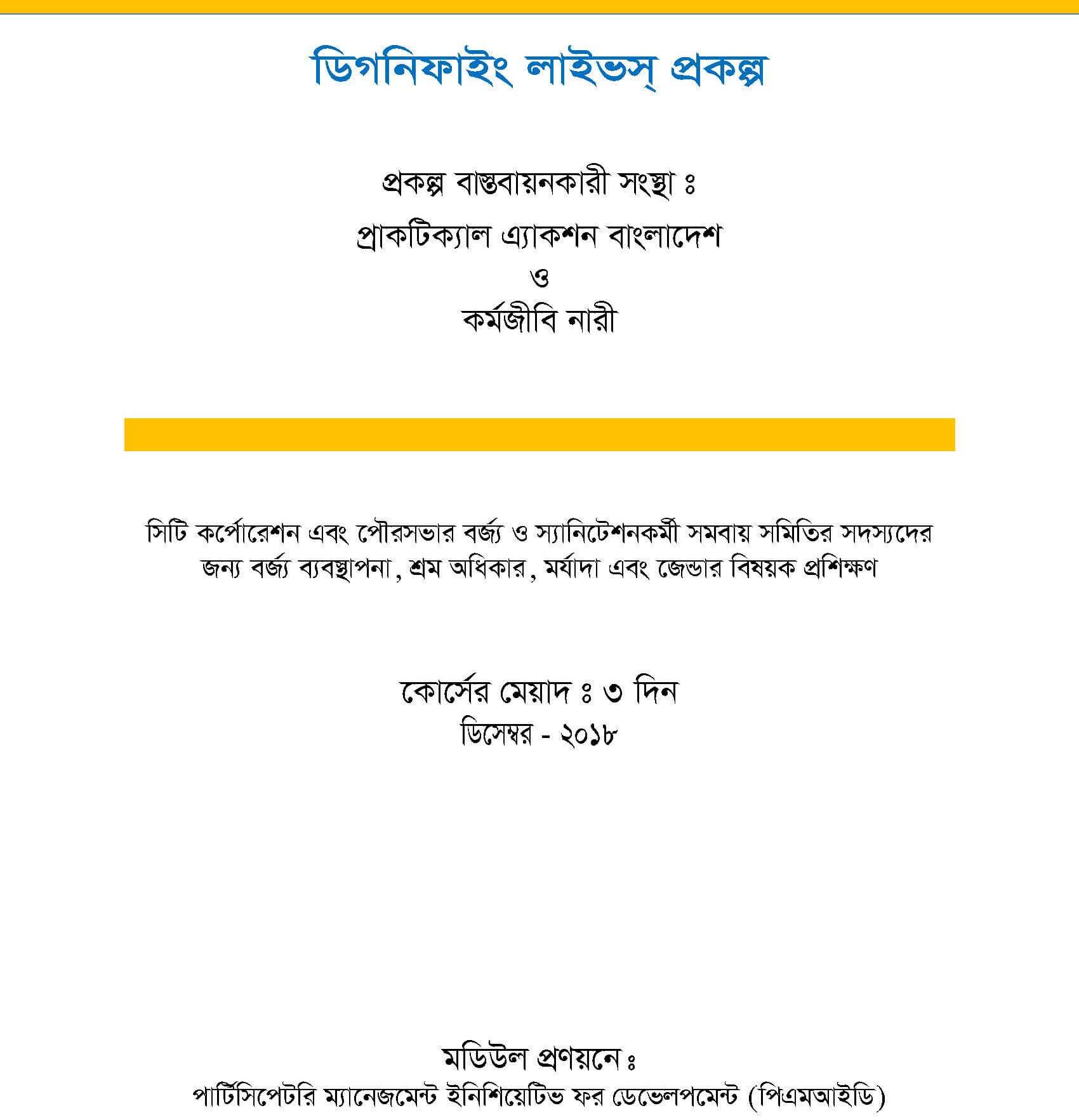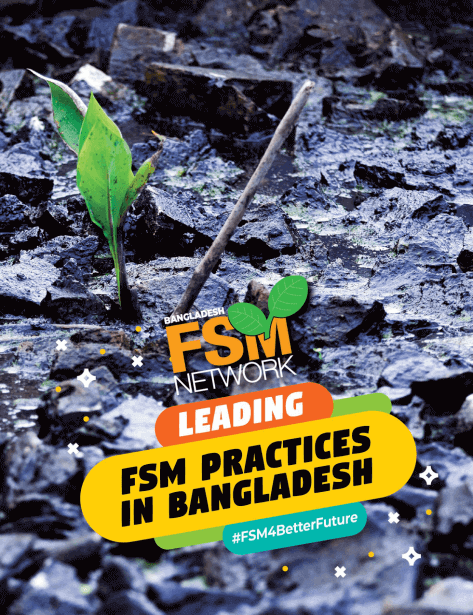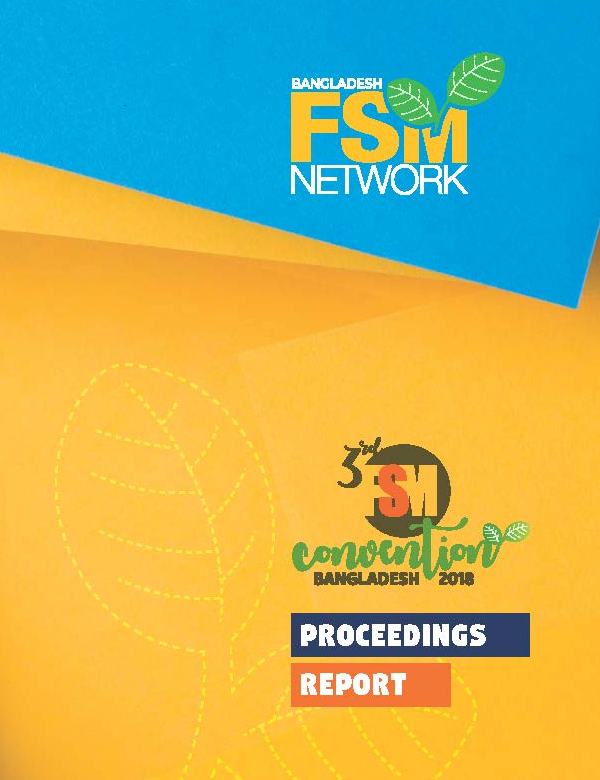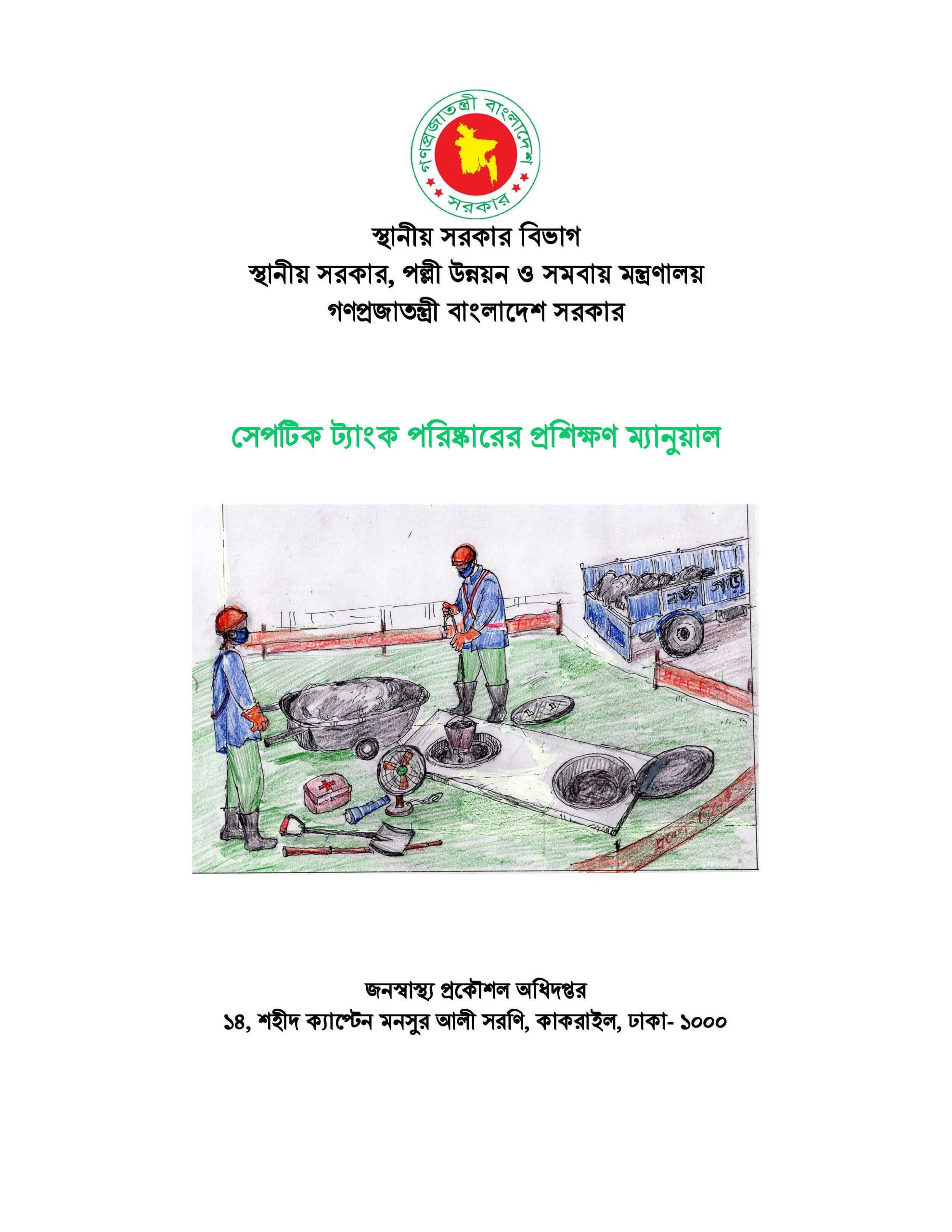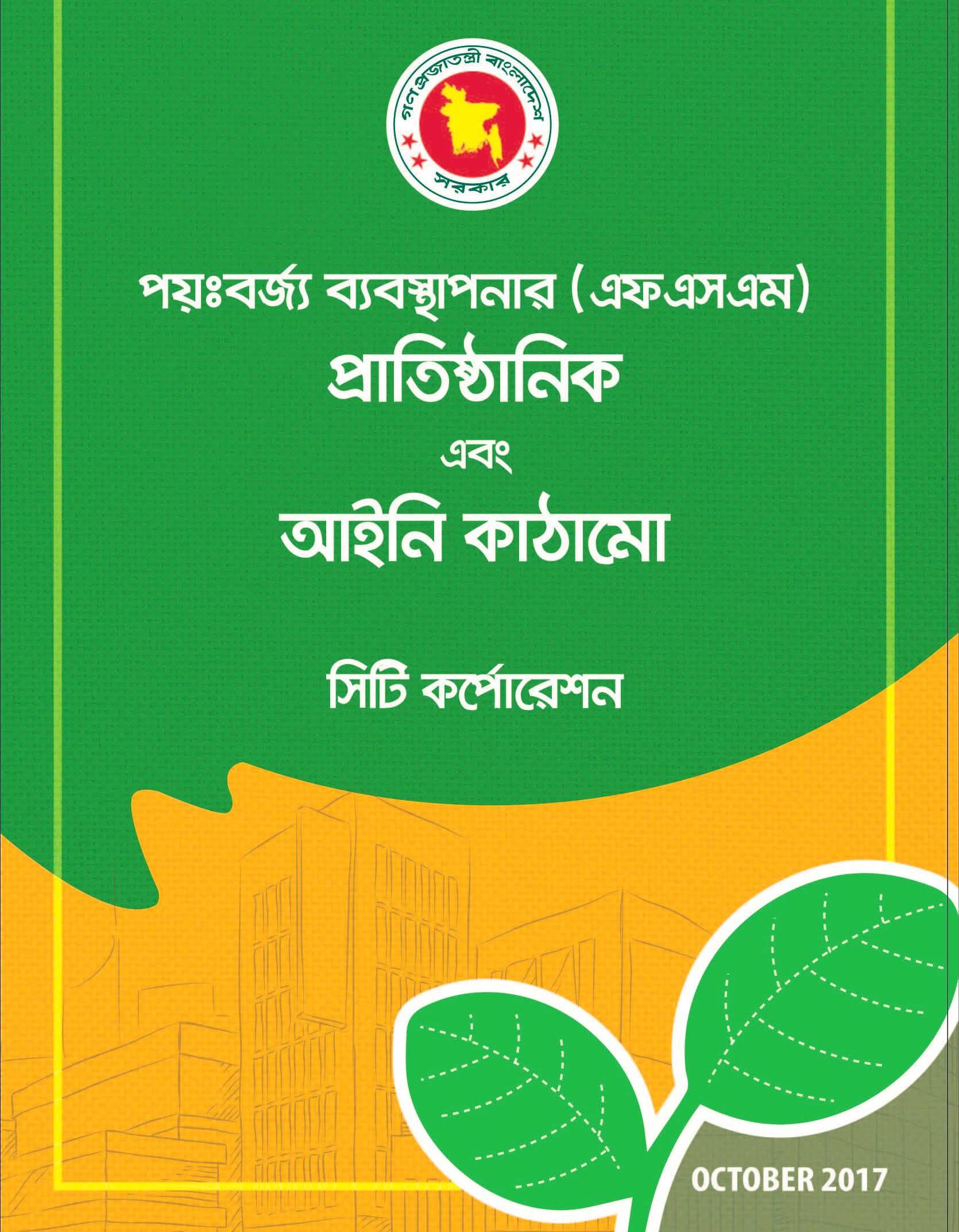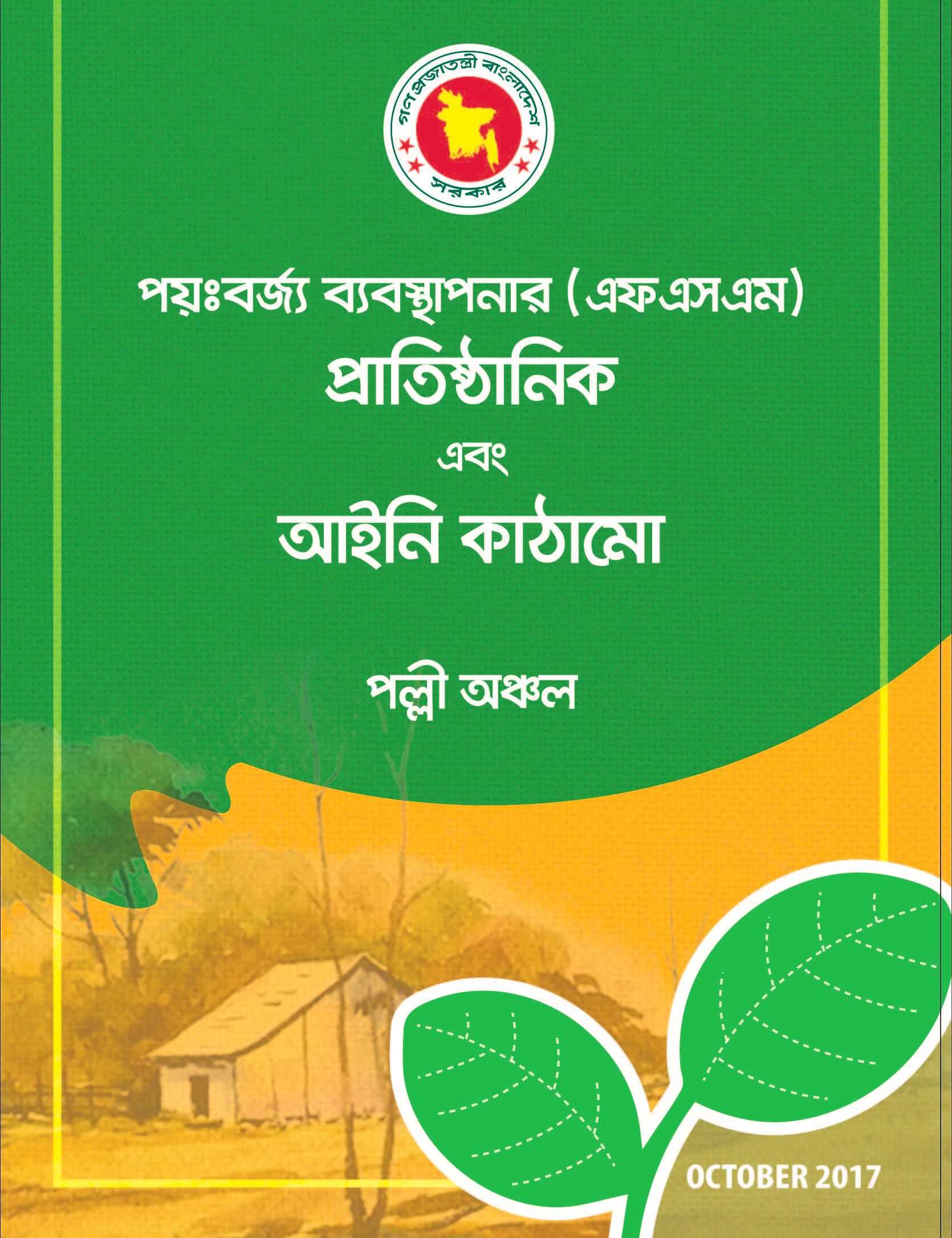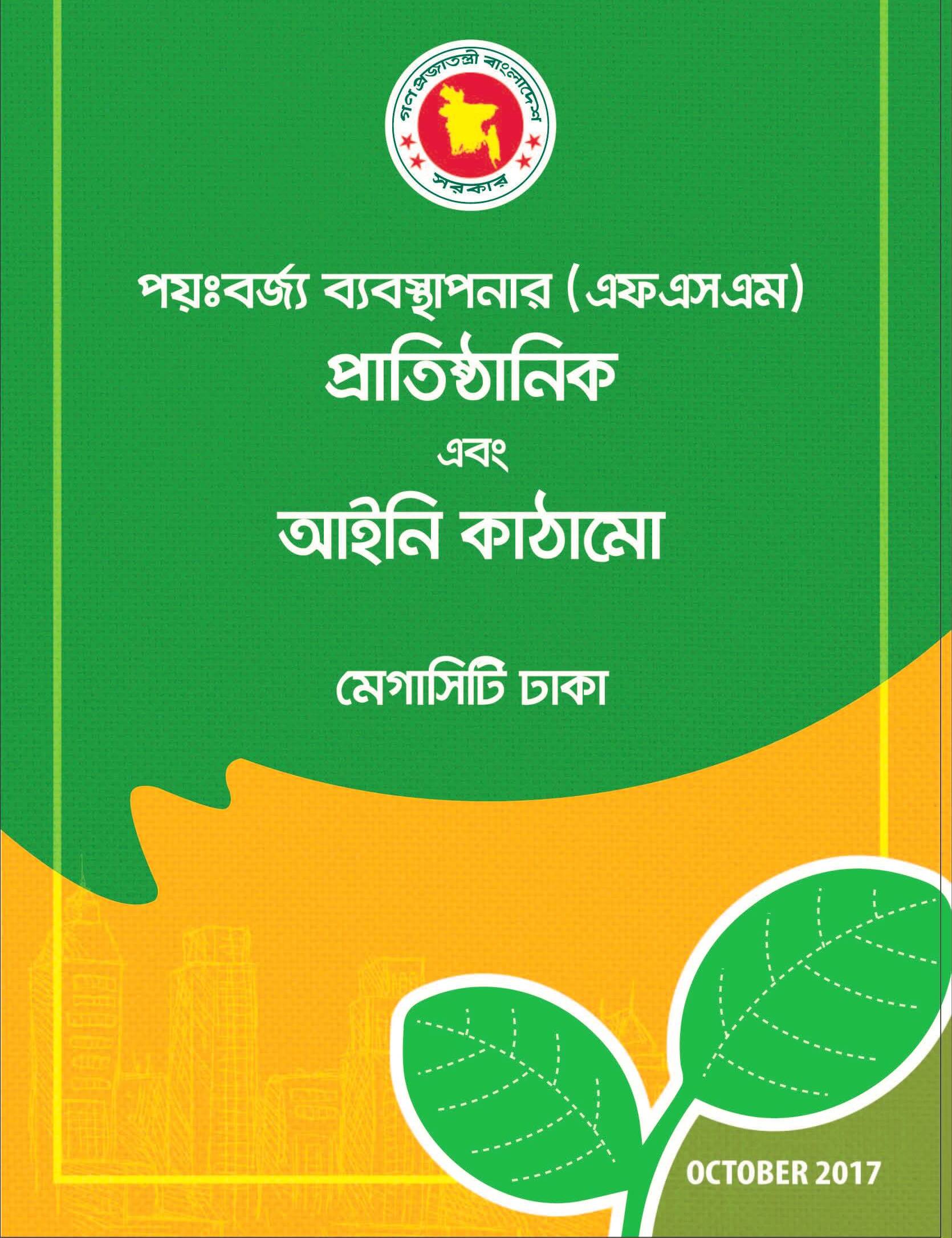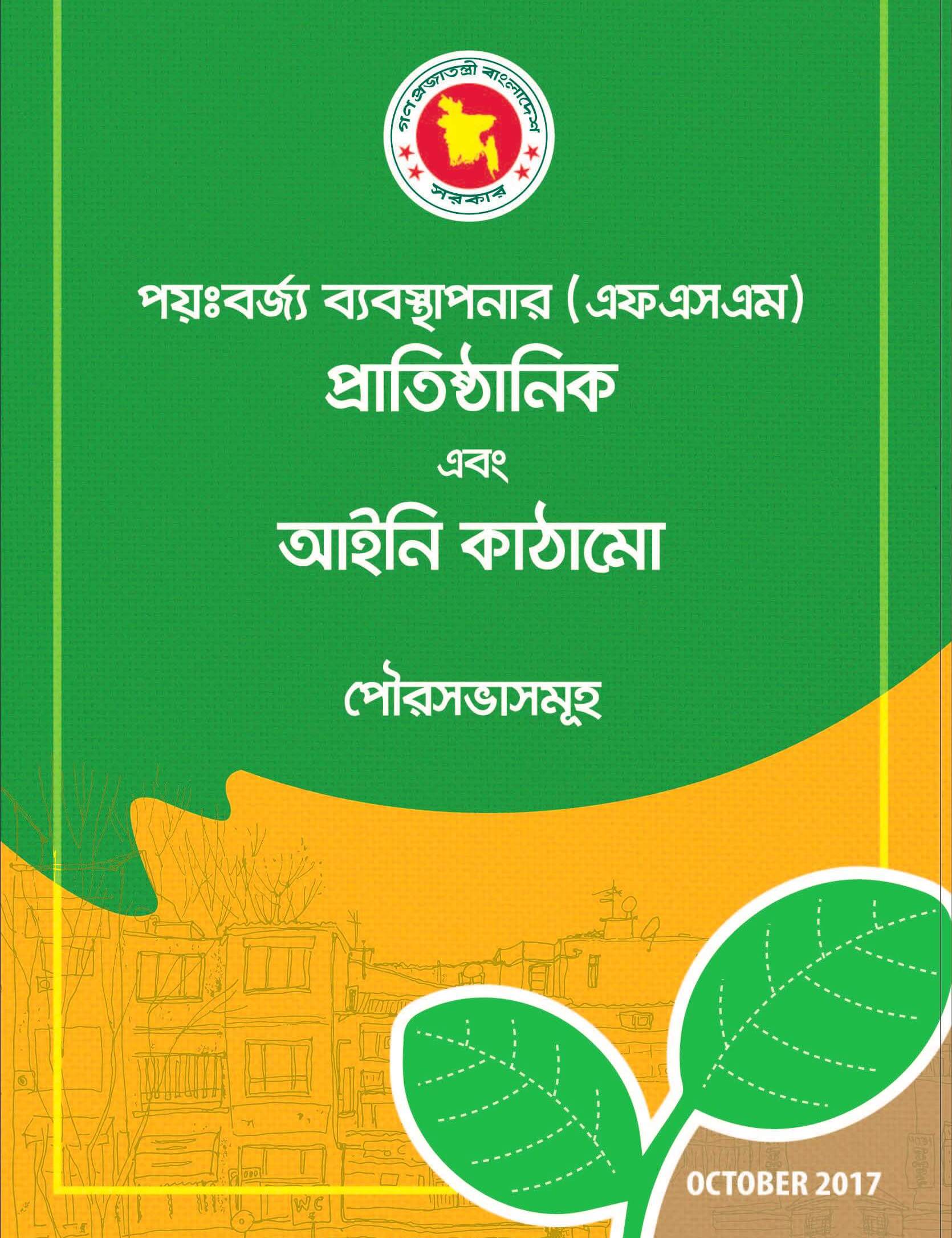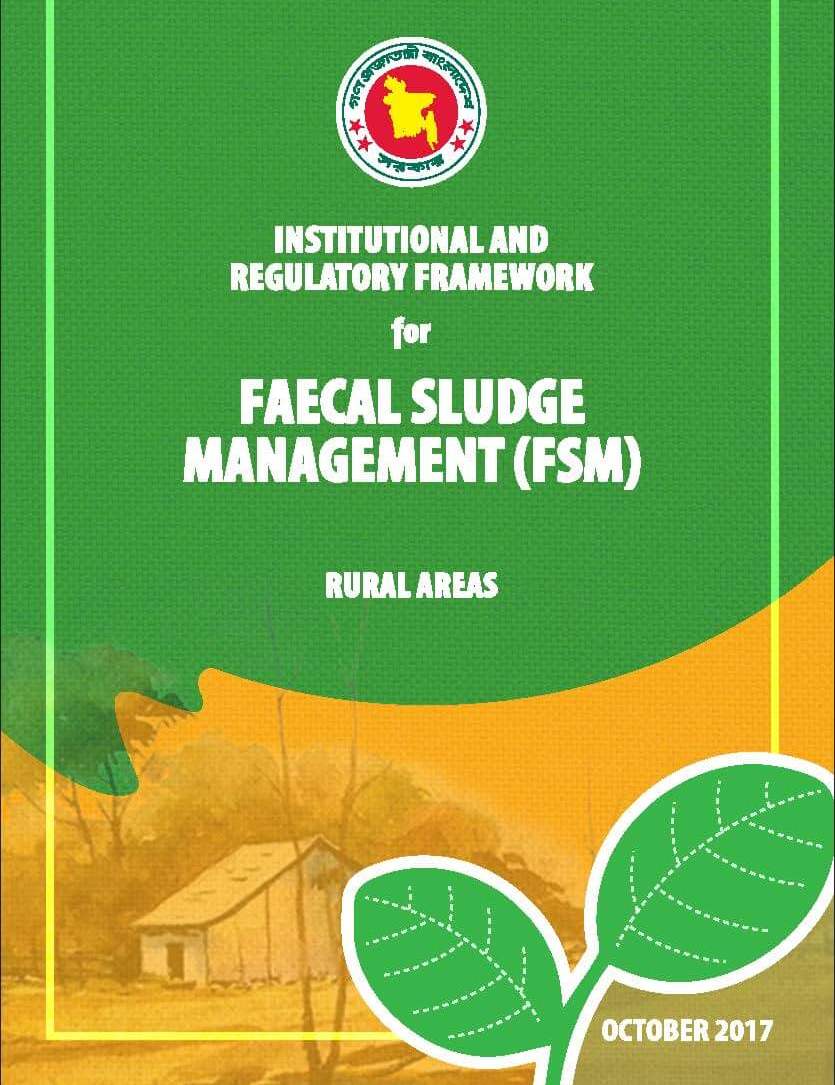Resources
Find journal articles, external publications, and ITN-BUET’s own portfolio of reports and briefs.
Dignifying Lives Project-OHS Training Module
Training on occupational health and safety for members of the waste and sanitation workers cooperatives.
Publisher(s): Practical Action
December, 2018
Dignifying Lives Project-Labour Rights Training Module
Training on sludge management, labour rights, dignity and gender for members of the waste and sanitation workers cooperatives in city corporations and paurashavas.
Publisher(s): Practical Action
December, 2018
Leading FSM Practices in Bangladesh
To overcome these challenges, the municipal authority has started providing FSM services to people in Benapole since April 2018 with the support from SNV Netherlands Development Organization. In this implementation process, the municipality and SNV are playing the following key roles:
Publisher(s): FSM Network
November, 2018
3rd FSM Convention Bangladesh 2018: Proceedings Report
Bangladesh Faecal Sludge Management (FSM) Network organised the 3rd FSM Convention, with the aim to find the way forward in terms of sharing experiences for policy influencing and promoting the business of faecal sludge. Focused on resource mobilisation for ensuring and scaling up sustainable FSM services in Bangladesh, this day-long convention brought together sanitation actors and the other relevant stakeholders to share the learnings from the FSM journey in Bangladesh and suggest initiatives to scale up the momentum.
Publisher(s): FSM Network
November, 2018
সেপটিক ট্যাংক পরিষ্কারের প্রশিক্ষণ ম্যানুয়াল
The main purpose of this training manual is to develop the capacity of septic tank emptiers in urban and rural areas of Bangladesh in how to properly and safely clean septic tanks. The emptiers are also trained on how to address risks associated with septic tank emptying and how to mitigate them.
Publisher(s): LGD
First Edition: November, 2018
পয়ঃবর্জ্য ব্যবস্থাপনার (এফএসএম) প্রাতিষ্ঠানিক এবং আইনী কাঠামোঃ সিটি কর্পোরেশন
আমাদের দেশে নিরাপদ স্যানিটেশন অনুশীলন নিশ্চিত করার কেন্দ্রীয় ধারণাটিকে গ্লোবাল গোল ৬.২ এর সাথে সংযুক্ত করে প্রাতিষ্ঠানিক ও নিয়ন্ত্রক কাঠামোটি তৈরি করা হয়েছে। এই বিভিন্ন প্রসঙ্গে এফএসএম পরিষেবাদি বাস্তবায়নের জন্য প্রাতিষ্ঠানিক ভূমিকা ও দায়বদ্ধতা রেখে- সিটি কর্পোরেশন, পৌরসভা, গ্রামীণ অঞ্চল এবং মেগা-সিটি ঢাকার জন্য আইআরএফ-এফএসএম পৃথকভাবে তৈরি করা হয়েছে।
October, 2017
পয়ঃবর্জ্য ব্যবস্থাপনার (এফএসএম) প্রাতিষ্ঠানিক এবং আইনী কাঠামোঃ পল্লী অঞ্চল
আমাদের দেশে নিরাপদ স্যানিটেশন অনুশীলন নিশ্চিত করার কেন্দ্রীয় ধারণাটিকে গ্লোবাল গোল ৬.২ এর সাথে সংযুক্ত করে প্রাতিষ্ঠানিক ও নিয়ন্ত্রক কাঠামোটি তৈরি করা হয়েছে। এই বিভিন্ন প্রসঙ্গে এফএসএম পরিষেবাদি বাস্তবায়নের জন্য প্রাতিষ্ঠানিক ভূমিকা ও দায়বদ্ধতা রেখে- সিটি কর্পোরেশন, পৌরসভা, গ্রামীণ অঞ্চল এবং মেগা-সিটি ঢাকার জন্য আইআরএফ-এফএসএম পৃথকভাবে তৈরি করা হয়েছে।
October, 2017
পয়ঃবর্জ্য ব্যবস্থাপনার (এফএসএম) প্রাতিষ্ঠানিক এবং আইনী কাঠামোঃ মেগা সিটি ঢাকা
আমাদের দেশে নিরাপদ স্যানিটেশন অনুশীলন নিশ্চিত করার কেন্দ্রীয় ধারণাটিকে গ্লোবাল গোল ৬.২ এর সাথে সংযুক্ত করে প্রাতিষ্ঠানিক ও নিয়ন্ত্রক কাঠামোটি তৈরি করা হয়েছে। এই বিভিন্ন প্রসঙ্গে এফএসএম পরিষেবাদি বাস্তবায়নের জন্য প্রাতিষ্ঠানিক ভূমিকা ও দায়বদ্ধতা রেখে- সিটি কর্পোরেশন, পৌরসভা, গ্রামীণ অঞ্চল এবং মেগা-সিটি ঢাকার জন্য আইআরএফ-এফএসএম পৃথকভাবে তৈরি করা হয়েছে।
October, 2017
পয়ঃবর্জ্য ব্যবস্থাপনার (এফএসএম) প্রাতিষ্ঠানিক এবং আইনী কাঠামোঃ পৌরসভা
আমাদের দেশে নিরাপদ স্যানিটেশন অনুশীলন নিশ্চিত করার কেন্দ্রীয় ধারণাটিকে গ্লোবাল গোল ৬.২ এর সাথে সংযুক্ত করে প্রাতিষ্ঠানিক ও নিয়ন্ত্রক কাঠামোটি তৈরি করা হয়েছে। এই বিভিন্ন প্রসঙ্গে এফএসএম পরিষেবাদি বাস্তবায়নের জন্য প্রাতিষ্ঠানিক ভূমিকা ও দায়বদ্ধতা রেখে- সিটি কর্পোরেশন, পৌরসভা, গ্রামীণ অঞ্চল এবং মেগা-সিটি ঢাকার জন্য আইআরএফ-এফএসএম পৃথকভাবে তৈরি করা হয়েছে।
October, 2017
Institutional and Regulatory Framework for Faecal Sludge Management (FSM): Rurals
The Institutional and Regulatory Framework has been developed with the central notion of ensuring safe sanitation practice in our country, aligned with Global Goal 6.2. The IRF-FSM has been developed separately for city corporations, municipalities, rural areas, and the mega-city of Dhaka – laying out the institutional roles and responsibilities to implement FSM services in these different contexts.
October, 2017


